Aug 14
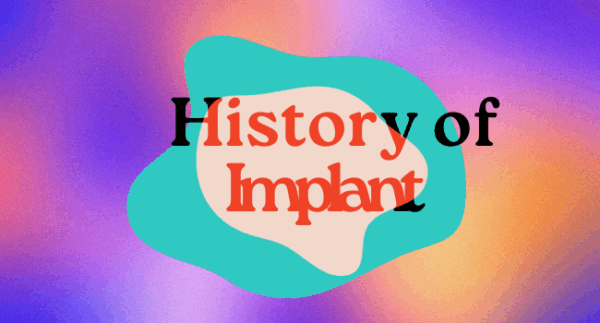
Help Us Protect Access to Sexual and Reproductive Health Care Today!
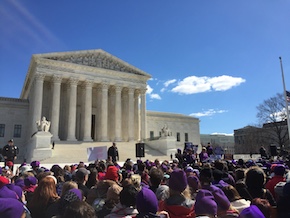 The federal government has a long history of obstructing access to abortion services. Now they are taking it a step further by making it difficult to get information on abortion. On June 26, the Supreme Court struck down a law in California that was designed to ensure that pregnant people seeking information on their pregnancy options would learn about all their options, including abortion. The Supreme Court’s decision allows anti-abortion pregnancy centers to withhold information on abortion options, citing freedom of speech. These biased pregnancy centers out number abortion providers 3 to 1. In states like Texas, these biased pregnancy centers out number abortion providers 10 to 1! Training primary care clinicians to provide comprehensive pregnancy options counseling is an important part of RHAP’s work. In this way, people can access information on all their options from their own clinician.
The federal government has a long history of obstructing access to abortion services. Now they are taking it a step further by making it difficult to get information on abortion. On June 26, the Supreme Court struck down a law in California that was designed to ensure that pregnant people seeking information on their pregnancy options would learn about all their options, including abortion. The Supreme Court’s decision allows anti-abortion pregnancy centers to withhold information on abortion options, citing freedom of speech. These biased pregnancy centers out number abortion providers 3 to 1. In states like Texas, these biased pregnancy centers out number abortion providers 10 to 1! Training primary care clinicians to provide comprehensive pregnancy options counseling is an important part of RHAP’s work. In this way, people can access information on all their options from their own clinician.
That isn’t all. On May 22, the Trump administration announced new rules that would severely affect the Title X program, a federal program that has been providing health care organizations in the United States with funding to provide comprehensive contraception care to millions of people living in poverty. One of the worst of these new rules would prevent any organization that receives Title X funding from providing abortion counseling or referrals. Title X has never covered abortion care. But now clinicians who work in organizations can’t even talk about abortion as an option.
Providing pregnant people with unbiased counseling is an important part of family planning care and these recent actions are making this impossible.
We still have a chance to make a difference on the Title X. These new rules are not in effect yet. They first need to go through a 60-day public comment period. The comment period started on June 1st and ends July 31st. Anyone can weigh in to let the federal government know what they think about these new rules.
Please take a minute to tell the federal government that the proposed Title X changes are NOT good health care. We need to overwhelm the federal government with comments that state how thoughtless and unfair these new rules are. They aren’t based in science and would only limit access to important health care.
If you are on social media, share this link bit.ly/TakeActionTitleX to help spread the word.
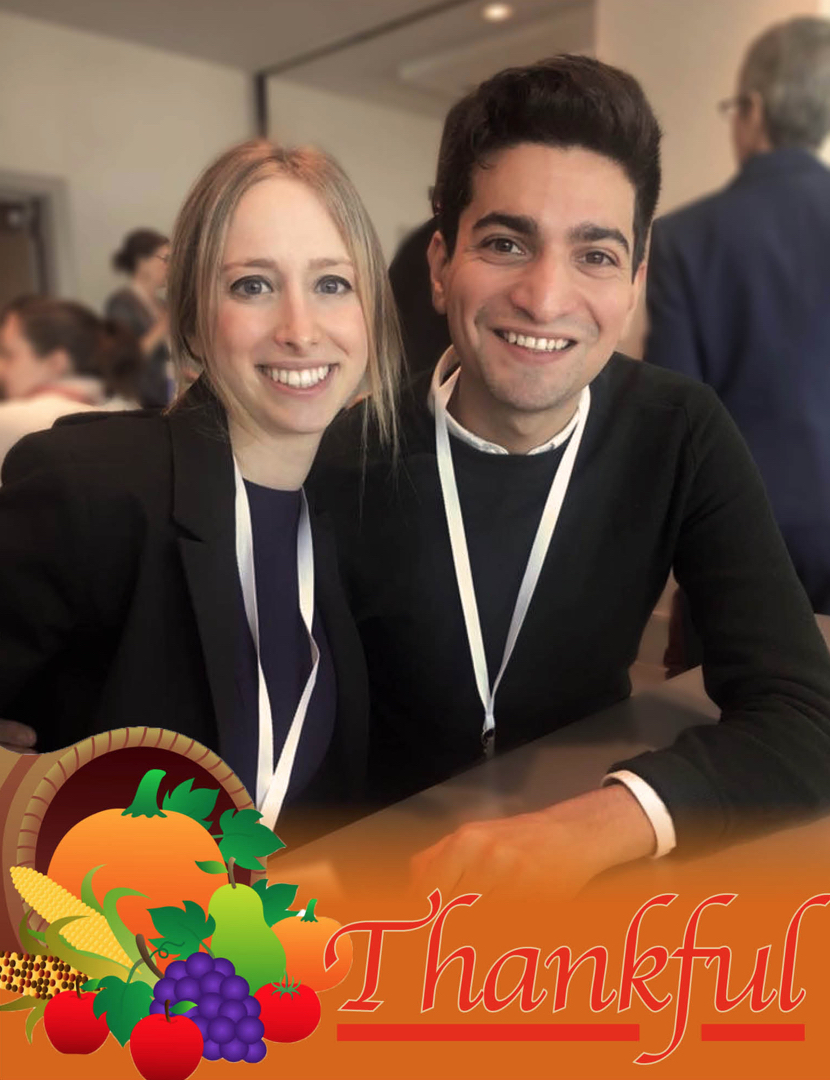 More than ten years ago, we started the year-long Reproductive Health Care and Advocacy Fellowship to address the lack of quality reproductive health care in the United States. It started with one fellow in one training site and has since expanded to five fellows training in three states every year. With your help, we train all of our fellows in full-spectrum reproductive health care, developing clinical leaders who will teach and provide care in three critical areas: abortion, contraception, and miscarriage care. We are proud that all of our fellows are providing and/or teaching others to provide this care.
More than ten years ago, we started the year-long Reproductive Health Care and Advocacy Fellowship to address the lack of quality reproductive health care in the United States. It started with one fellow in one training site and has since expanded to five fellows training in three states every year. With your help, we train all of our fellows in full-spectrum reproductive health care, developing clinical leaders who will teach and provide care in three critical areas: abortion, contraception, and miscarriage care. We are proud that all of our fellows are providing and/or teaching others to provide this care.
Here is what one of our fellows said about her experience with the fellowship:
“The Reproductive Health Care and Advocacy Fellowship provided me with the tools to help transform my community’s approach to client-centered reproductive health care. My organization serves 36,000 patients in an area in which most doctors work for a Catholic organization that prohibits clinicians from talking about contraception, never mind abortion. Of these women, 70% speak little to no English. They deliver their children in religious affiliated hospitals that provide no contraception counseling. Thanks to the training I received from the fellowship, I have been able to motivate my colleagues and collaborate with community partners to fill in the tremendous gap in reproductive care in my community. With the patient at the center of her care, we now provide comprehensive reproductive care services, including contraception, postpartum birth control, miscarriage management, and options counseling.”
We are so proud of the work our fellows are doing to increase access to reproductive health care. Each fellow we train is another clinician who is able to provide and teach others to provide patient-centered reproductive health care.
There is still more work to be done. More than 19 million women of reproductive age live in communities with no access to the full range of birth control options. 100 percent of our fellows are involved in providing comprehensive contraception and management of early pregnancy loss (miscarriage care). We want to train even more clinicians to do the same.
We have the opportunity to expand our training and we need your help. Every time we add a new fellowship training site, we make a direct impact on access to reproductive health care. If 67 people give $25 a month or $300 a year, we can fund a fellow in a new fellowship site for one year. Help us increase access to reproductive health care and continue filling the gap in reproductive care. Click here to sponsor a fellow.
If you sign up to give at least $25 a month, you’ll receive a free copy of our book “A Common Thread: Weaving Reproductive Health, Rights, and Justice” that highlights unsung heroes and visible change makers who have dedicated their lives to the reproductive health, rights, and justice movement.
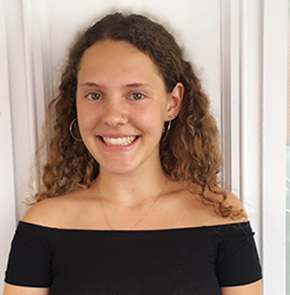 Talia Weine is RHAP’s summer 2018 Network Intern, and she has loved spending the last few weeks here! Talia currently lives in Brooklyn, New York, and has lived there for her entire life! This spring, she completed her first year of college at Washington university in St. Louis, where she is studying Political Science, Education Studies, and Spanish. As health care access and education equity are overlapping and intersecting issues, Talia has found that interning with RHAP has been an incredibly interesting and useful experience for her. At school, Talia volunteers as a peer counselor for SARAH, Washington University’s Sexual Assault and Rape Anonymous Helpline. Talia says that working on the helpline has taught her a lot about access to reproductive health care in Missouri, as well as counseling skills that are useful in her everyday life. Next year, she will be serving as one of the helpline’s Outreach Co-Coordinators, with the goal of further meeting the needs of marginalized groups on campus. Additionally, Talia volunteers with an organization called City Faces, which approaches civic engagement in St. Louis in a multifaceted manner. In the future, Talia can see herself working within the intersection of policy and counseling in the education system, with the goal of making quality education much more accessible to American children.
Talia Weine is RHAP’s summer 2018 Network Intern, and she has loved spending the last few weeks here! Talia currently lives in Brooklyn, New York, and has lived there for her entire life! This spring, she completed her first year of college at Washington university in St. Louis, where she is studying Political Science, Education Studies, and Spanish. As health care access and education equity are overlapping and intersecting issues, Talia has found that interning with RHAP has been an incredibly interesting and useful experience for her. At school, Talia volunteers as a peer counselor for SARAH, Washington University’s Sexual Assault and Rape Anonymous Helpline. Talia says that working on the helpline has taught her a lot about access to reproductive health care in Missouri, as well as counseling skills that are useful in her everyday life. Next year, she will be serving as one of the helpline’s Outreach Co-Coordinators, with the goal of further meeting the needs of marginalized groups on campus. Additionally, Talia volunteers with an organization called City Faces, which approaches civic engagement in St. Louis in a multifaceted manner. In the future, Talia can see herself working within the intersection of policy and counseling in the education system, with the goal of making quality education much more accessible to American children.
Talia likes to spend her free time reading poetry and spending time outdoors.
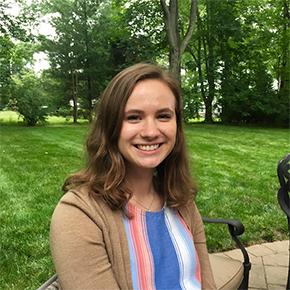 Jackie Sobol is very excited to be RHAP’s new Communications and Programs Intern for summer 2018! Jackie is originally from New Jersey, but now lives in Manhattan. She is a rising junior at the University of Michigan, where she is majoring in Political Science and minoring in Law, Justice and Social Change within the Sociology Department and Gender and Health within the Women’s Studies Department. At school, Jackie spreads awareness as a Panhellenic Peer Educator about sexual assault, sexuality, and consent on campus to members of the Panhellenic community. She also advocates for international education equity as the Global Awareness Chair of She’s the First Michigan. Jackie has always been very interested in women’s rights and access to reproductive health care, so RHAP is a great fit for her! In the future, Jackie would love to work with non-profit organizations or within governmental affairs, creating positive change either way.
Jackie Sobol is very excited to be RHAP’s new Communications and Programs Intern for summer 2018! Jackie is originally from New Jersey, but now lives in Manhattan. She is a rising junior at the University of Michigan, where she is majoring in Political Science and minoring in Law, Justice and Social Change within the Sociology Department and Gender and Health within the Women’s Studies Department. At school, Jackie spreads awareness as a Panhellenic Peer Educator about sexual assault, sexuality, and consent on campus to members of the Panhellenic community. She also advocates for international education equity as the Global Awareness Chair of She’s the First Michigan. Jackie has always been very interested in women’s rights and access to reproductive health care, so RHAP is a great fit for her! In the future, Jackie would love to work with non-profit organizations or within governmental affairs, creating positive change either way.
During her spare time, she loves to explore the city and read in the park.
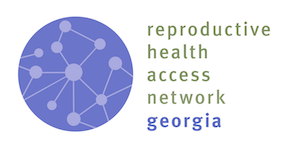
This month, RHAP is excited to highlight our newest Reproductive Health Access Network Cluster in Georgia, which met in June for the very first time. If you’re a clinician in the Atlanta area who would like to be connected with the Cluster, please email Laura Riker at laura@reproductiveaccess.org.
After moving to Atlanta from the Bay Area, Dr. Angeline Ti was looking for a community of like-minded providers and allies. “While we [Georgia] aren’t the most restrictive state, we do have our challenges, and finding a group of people who are interested in advocacy at some level was important to me.” Coming from an area where there was already a strong, organized group of reproductive health care providers and advocates, Dr. Ti was familiar with the Reproductive Health Access Network and the Cluster structure. After meeting Dr. Smith* another family physician and full-spectrum reproductive health care provider in Atlanta, they decided to work with RHAP and develop a new Cluster in the area.
In preparation for the first Georgia Cluster meeting, Dr. Ti and Dr. Smith reached out to their own personal networks and encouraged their contacts to do the same. “When other people heard about what we were trying to do, they reached out and suggested people they knew who might be interested- we were really open to anyone. It ended up being a patchwork of people that we either knew or had heard about or been referred to.” As a result, the Georgia Cluster is a diverse mix of family medicine physicians, ob-gyns, emergency medicine physicians, and non-physician clinicians such as Nurse Practitioners and Physicians’ Assistants. Cross-discipline coalition building is always important for advocacy; this is especially true in areas where the restrictions are greater and the community is smaller.
Per Dr. Ti, “A lot of people didn’t know each other, so it was nice to get that community building going. We spent a lot of time chatting and getting to know one another and a sense of our interests.” Overall, the common thread seemed to be that people were looking for a group of like-minded people, many of whom were driven by the 2016 election, to keep that post-election motivation going and continue organizing. Many ideas came out of this first meeting- ranging from meeting with local elected representatives to starting a “book club” to increasing activity in the Georgia Academy of Family Physicians. RHAP is very grateful to Dr. Ti and Dr. Smith for their efforts to organize in Georgia, and we look forward to supporting them as the Cluster grows and strengthens!
*Name changed to protect the provider’s privacy.
If you are a clinician and would like to be connected with the Georgia Cluster and/or the Reproductive Health Access Network, please email Senior Program Manager Laura Riker atlaura@reproductiveaccess.org.
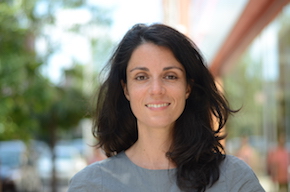 Olivia Perlmutt is wrapping up a busy two-year fellowship training program that provided her with intensive training in reproductive health care and a Master in Public Health from the City University of New York Graduate School of Public Health and Health Policy. Her two-year fellowship program combined health care, research and advocacy. “The fellowship provided me with the time and opportunity to do good scientific research that has a practical impact. Doing this kind of research is its own form of advocacy.”
Olivia Perlmutt is wrapping up a busy two-year fellowship training program that provided her with intensive training in reproductive health care and a Master in Public Health from the City University of New York Graduate School of Public Health and Health Policy. Her two-year fellowship program combined health care, research and advocacy. “The fellowship provided me with the time and opportunity to do good scientific research that has a practical impact. Doing this kind of research is its own form of advocacy.”
Olivia’s fellowship research project examined the complication rates associated with uterine aspiration provided by family physicians in community-based settings. While uterine aspiration can be done in outpatient settings by family physicians, it rarely is. One barrier to integrating uterine aspiration in to family medicine practices is the lack of data demonstrating safety within this setting. Olivia’s study did just that. Her study found that uterine aspiration for abortion and miscarriage management can safely be conducted by family physicians in community-based settings.
For her research and academic performance, Olivia was recently awarded the Community-Clinical Scholar Award by the Department of Community Health and Social Sciences at the CUNY Graduate School of Public Health and Health Policy.
What’s up next for Olivia? Now that she has completed her fellowship she will be starting a job doing full-scope family medicine care–including reproductive health care–where she’ll be training future family physicians, working on publishing, and talking about her research.
We are so proud of Olivia!
Your gift allows us to train and support health care providers across the United States so they can offer patients compassionate and comprehensive care.
Aug 14
